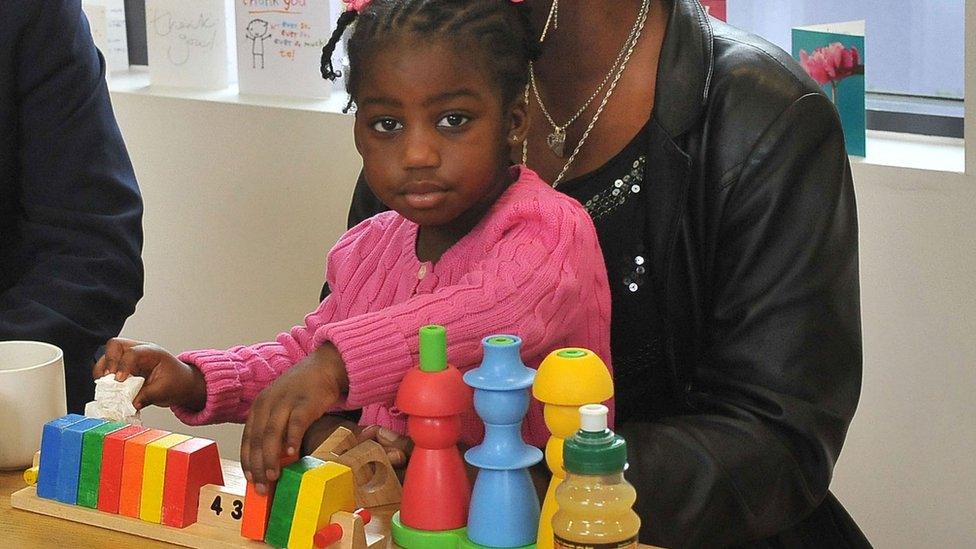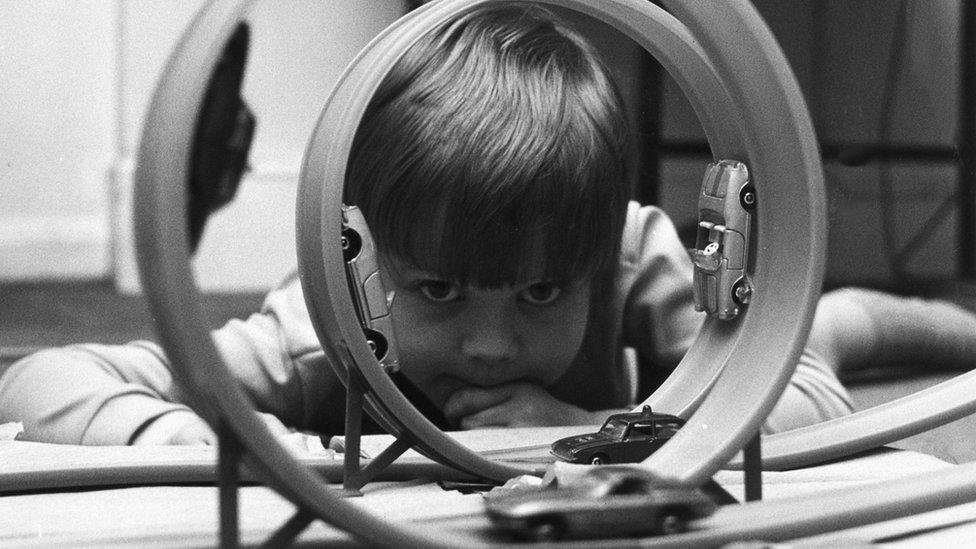Five top parenting tips that could be in official lessons
- Published

What are the key things that every parent should know before they take on what is arguably the most important job of their life?
After a call from a leading public health expert for parents in the UK to have lessons provided by the government, we have invited educational psychologist Zubeida Dasgupta, external to offer five useful tips for parenting to help promote mental well-being in children.


1 Attach and tune in
Help children to feel safe from the start with good attachment, being attuned to them and setting clear and consistent boundaries. It's about your relationship, knowing what your child needs at that moment. Do they need you? Or a bit of space? You have to be ready to see what they need.
If the relationship is an attuned one, then the child feels safe and can manage difficulties in the outside world.
There's a lot of evidence, (as the FPH says in its report, external) that children who don't get that in the first 1,001 days, don't develop secure attachment. We use Video Interaction Guidance, external to support parents - reviewing little clips that show their interactions working well. Showing those moments of joy help them to feel good about their parenting. And help their communication, interactions and relationship with their child.


2 Look after your own mental health
Be aware of what can make us stressed, anxious or depressed. Do we have a network of support - be that a partner, friends, school, or the local council's parenting classes?
Make sure there is support for yourself, that makes parenting less isolating, that there is space to offload. For working parents it can be really stressful to balance raising kids and working.
If we feel good and are calm, if we feel mentally well, we can better support our children.


3 Don't overfill their days
Give children time and space. We try to overfill their days with activities when we could be taking our foot off the accelerator and just "being". Too much activity puts pressure and expectation on children. That doesn't give them space to be with themselves and become self-aware.
We are often in "rushing" mode, not "being" mode. If we have space in time and in our minds we can listen to what our children say, be that verbally, or non-verbally. Then they are more likely to talk about their feelings. It doesn't have to be hours, just spend 10 minutes joining your child's world - observing, joining in, following their play.
Discuss feelings in everyday situations. In books, what do the characters feel? Gently show interest in feelings and thoughts. This helps children develop vocabulary for talking about feelings.


4 Learn resilience, bear frustration.
Help children to become more resilient, even from an early age. If they can't get a cube in a shape sorter, we can't bear their frustration and help them to do it.
But we all need to bear frustration throughout life. Learning to become resilient and deal with it is a good skill. Be a sensitive parent who can judge how far they can support their child to tolerate frustration.
Then, if they have managed something well, help them notice what they have done, help them reflect.


5 The "other" five-a-day
As the NHS website says, make sure you have your five-a-day for mental wellbeing., external They are: be mindful; connect; exercise; learn something new; and give to others.
The idea is that if you should do a little bit of each of those every day. Just like the five-a-day portions of fruit and vegetables that keep the family physically healthy, these keep you mentally healthy. Parents should also trust their instinct and if they are concerned about their child's mental health, seek advice from their GP.


And an extra tip, just for fun...
... is to have fun. After all, laughter releases happy hormones.
- Published15 June 2016
